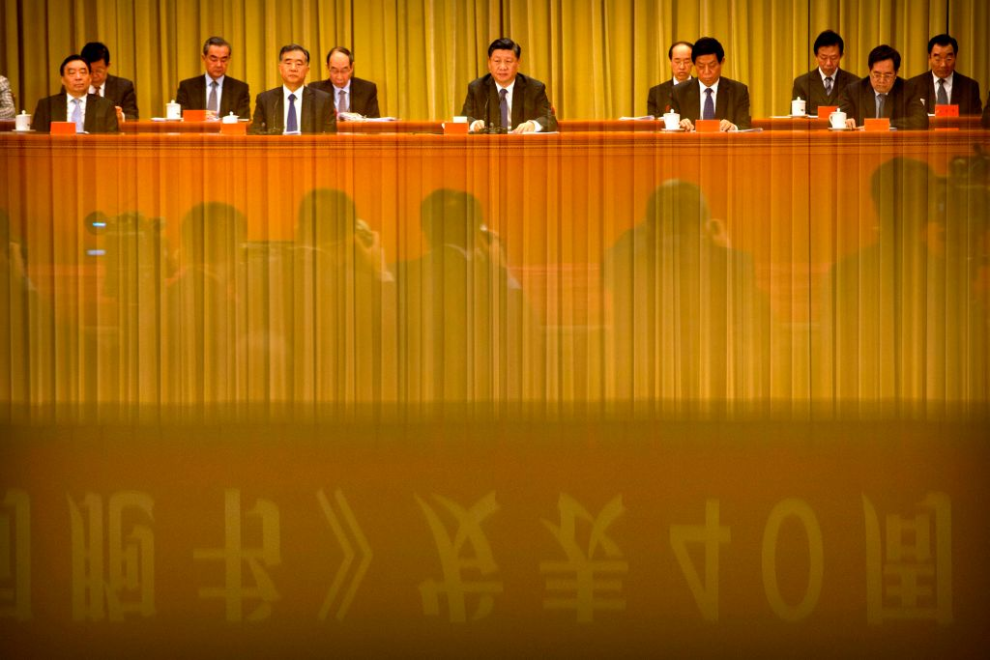As Deputy Prime Minister and Defence Minister Richard Marles noted in his statement introducing the 2023 defence strategic review, a stable relationship between Australia and China is in the interests of both countries and the broader region. ‘Australia will,’ he stressed, ‘continue to cooperate with China where we can, disagree where we must, manage our differences wisely, and, above all else, engage in and vigorously pursue our own national interest.’
The review thoughtfully reflects Canberra’s determination to never give up trying to engage China while at the same time squarely facing up to the risks inherent in a region defined by strategic competition.
China’s military build-up is a big part of the problem, and it has long been large enough to, in and of itself, increase the potential for military conflict in the region, if only because it encourages other countries to modernise their military forces.
But it has taken several years of naked aggression and overt bullying from Beijing alongside that military build-up to show clearly how Australia’s interests and the global rules-based order could in the future be permanently undermined.
So, what is driving China’s increasingly aggressive stance?
Despite its many positive chapters and subplots, China’s rise is at its core a tale of discontentment and revenge—and it is a story playing out on a large scale.
To most observers of international politics in Asia, it’s now clear that China’s leaders won’t be satisfied until the United States is kicked out of the region, preferably unceremoniously, and Beijing has secured the unquestioning respect of all those left behind.
From this analytical starting point, it is hard to view China as anything other than an enduring national security threat to Australia.
While it is always difficult to divine the real strategic intentions of China’s leaders, Xi Jinping’s China clearly covets deference as a precondition for engagement and, it seems, genuinely believes that getting other countries to defer to China’s interests is necessary for it to achieve full national rejuvenation.
To Xi, all serious questions of power and cooperation should be—and for domestic political reasons increasingly need to be—framed in terms of external struggle.
In contemplating the potentially negative consequences of all this, in terms of China either getting or being denied what it wants, it’s important to understand the centrality of the notion of deference to Beijing’s view of itself and its external security environment.
But how much does it really want it?
For strategic thinkers in Canberra and across the region, there’s a world of difference between dealing with a China that seeks to control most of the things that others say and do but is quietly satisfied with being able to do so only some of the time, and a China that believes it is entitled to do so routinely and justified in acting out when it cannot.
Both are unpleasant, to be sure, but while the former is seriously annoying, the latter is unacceptable because it so clearly undermines the ability of sovereign states to make their own decisions and therefore threatens to make life permanently challenging for all of us.
Avoiding this potentially negative outcome would be one of the lines of reasoning underlying Canberra’s recent decision to expand Australia’s contributions to regional security through the AUKUS arrangement.
There were certainly clear risks associated with that decision. For one thing, it risked shifting China’s perception of Australia as a benign middle power with no real means to shape the regional security environment to something distinctly darker and more impactful. But it was a decision that reflected the reality of the enormous national challenge we face.
The cost of inaction, should China succeed in getting what it wants, simply became too serious to ignore. And we tried to do just that for quite a while, perhaps longer than we should have.
China’s efforts over the past several years to permanently reshape the region have caused even those observers who pride themselves on their capacity not to overreact to worry about the prospect of the global power balance shifting decisively in China’s favour.
China’s campaign of economic coercion against Australia gave us a taste of what a region deterred by Chinese coercion would look and feel like. And it tasted bad.
Under Xi’s leadership, China has undoubtedly become more aggressive and more accepting of risk. More worrying than its growing military power is the fact that Beijing’s desire to dominate the region is still deeply rooted in historical memory and intersecting domestic-political and geopolitical issues and interests that make it hard for China’s leaders to step back from external challenges—even if they wanted to.
The legacy of hatred and bitterness from Japan’s military invasion of China some eight decades ago hasn’t faded with the passing of time.
Simply put, China’s leaders have less room for manoeuvre and more power to exert.
Against the backdrop of all these considerations, it is no longer possible to credibly argue that China will eventually become a benign hegemon, one that will in time happily use at least some of its national power to pursue things other than self-interest.
With all indictors pointing in the opposite direction, it is a very worrying and, for want of a better word, threatening time for the region and the world.
And there’s no shame in admitting that.
Source : TheStrategist











